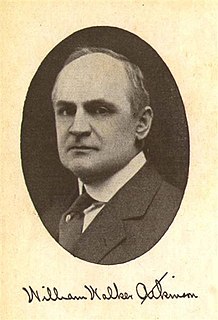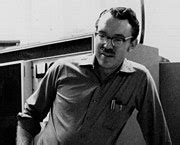A Quote by Edgar Cayce
Each soul or entity will and does return, or cycle, as does nature in its manifestations about man; thus leaving, making or presenting-as it were-those infallible, indelible truths that it -Life-is continuous.
Related Quotes
There may be different channels of approach, yes. For not all peoples walked in the field when the wheat was ripe. Neither did all stand at the tomb when Lazarus was called forth. Neither were they all present when He walked on the water, nor when He fed the five thousand, nor when He hung on the Cross. Yet each experience answered, and does answer to something within each individual soul-entity. For each soul is a corpuscle in the body of God.
If you make a habit of sincere prayer, your life will be very noticeably and profoundly altered. Prayer stamps with its indelible mark our actions and demeanor. A tranquillity of bearing, a facial and bodily repose, are observed in those whose inner lives are thus enriched. Within the depths of consciousness a flame kindles. And man sees himself. He discovers his selfishness, his silly pride, his fears, his greeds, his blunders. He develops a sense of moral obligation, intellectual humility. Thus begins a journey of the soul toward the realm of grace.
It is a great good to be given over to the will of God. Then the Lord alone is in the soul, and no other thought, and she prays to God with a pure mind. When the soul is entirely given over to the will of God, then the Lord Himself begins to guide her, and the soul learns directly from God ... A proud man does not with to live according to the will of God. He likes to direct himself, and does not understand that man does not have enough understanding to direct himself without God.
It is always a great honour to mention a truth which has not become widespread yet. One of these truths is that man has no soul; he has only 'body' and 'mind'. Man's unshakable belief on the soul will not change this scientific truth! No belief can be higher than the scientific truths! Man can be born, can walk and work and can think without owning a mysterious and an immaterial soul! The soullessness of the man is a great tragedy both for the man and for the religion. But Man, contrary to the religion, will come out with triumph from this tragedy.
Therefore, the truly great man, although he does not injure others, does not credit himself with charity and mercy (these are natural to him). He does not seek gain, but does not despise his followers who do. He struggles not for wealth, but does not take credit for leaving it alone... The ranks and emoluments of the world are to him no cause for joy, it's punishments and shame no cause for disgrace.
Man is the only animal who does not feel at home in nature, who can feel evicted from paradise, the only animal for whom his own existence is a problem that he has to solve and from which he cannot escape. He cannot go back to the prehuman state of harmony with nature, and he does not know where he will arrive if he goes forward. Man's existential contradiction results in a state of constant disequilibrium. This disequilibrium distinguishes him from the animal, which lives, as it were, in harmony with nature.
The disembodied soul does not part with Nature when it leaves the earth; life but, rather, it rises to a plane of Nature which is fuller, richer and sweeter in every way than the best of which the earth dwelling soul dreams. The dross of materiality burned away by the astral vibrations, the soul blossoms and bears spiritual fruit in the new life.
Such pretensions to nicety in experiments of this nature, are truly laughable! They will be telling us some day of the WEIGHT of the MOON, even to drams, scruples and grains-nay, to the very fraction of a grain!-I wish there were infallible experiments to ascertain the quantum of brains each man possesses, and every man's integrity and candour:-This is a desideratum in science which is most of all wanted.


































